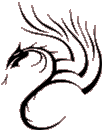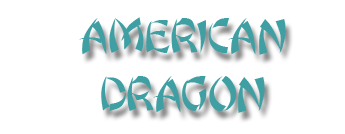Clinical
Manifestations
|
- Digestive symptoms:
Chronic diarrhea
Loose stools or
Alternating diarrhea
and constipation
Explosive bowel movements
Abdominal
bloating
Ascites
Abdominal cramping and/or pain
Nausea
Intestinal bleeding and/or pus
Poor appetite or
Ravenous appetite
Peculiar food cravings
Vomiting
Bloody stools
- Neuromuscular symptoms:
Muscle soreness
Muscle heaviness
Muscle weakness
Wandering body pains
Physical Heat sensations
Cold night sweats
Extremities to feel heavy and ache all over
Aversion to bright light
Desires to lay in a dark room
- Mental symptoms:
Depression
Depression that alternates with periods of sudden happiness
Frequent suicidal thoughts
Flaring anger
Fits of
rage
Unpredictable onset of strong yet volatile emotions
Inner restlessness
Insomnia
A
general sense of muddledness
and confusion
Chaotic thought patterns
Visual and/or
auditory hallucinations
Epileptic seizures
A sensation of “feeling possessed”
- Constitutional signs:
Progressing state of mental and physical exhaustion
Indications of Yuan Qi damage
Dark circles underneath the
eyes
Mystery symptoms that evade clear diagnosis
A
history
of acute protozoan infection
A
history of travel to tropical
regions
T: Red tip or Red ‘parasite dots’ on top with stagnation in sublingual veins (Parasite dots Chong Ban are little red dots that generally cluster on
the front third of the tongue [shining through a greasy tongue coating] and
sometimes extending to the middle. They are often said to be indicative
of worms and other parasites [especially when observed in children].
They are a sign of “localized Heat” amidst the Dampness, an energetic environment that, while different from Damp-Heat, is typical for most
parasitic disorders.)
C: Rooted and Damp
P:
Floating and big pulse or Choppy
- A violent reaction to Ginseng Ren Shen may be one of the diagnostic features of the disease.
- Gu syndrome traditionally warrants the presence of
particularly vicious parasites or a super infection of
many different kinds of parasites that combine their
toxic potential to gradually putrefy the patient’s body
and mind. From a modern perspective this definition
of Gu syndrome points to aggressive helminthic, protozoan, fungal, spirochete or viral afflictions that have become systemic in an immune-compromised patient.
|
Food |
- Avoid (during or after the Gu treatment): chicken, duck, fish,
shrimp, snails, gecko, snakes, insects of all kinds. Also food
items that “easily breed worms” should be avoided, especially all forms of sugar, honey, jujube dates and other sweet
substances.
- Consume in increased amounts: tofu, celery, cabbage, spinach,
lotus root, shiso (perilla) leaves, peppermint, garlic, horseradish, ginger, bitter melon, black mu’er fungus, lychee,
longan, oranges, tangerines, grapefruit, plums, pomegranates, watermelon, vinegar, green tea, lamb and pork. However, if any of these items should aggravate the condition,
it should also be avoided.
|

